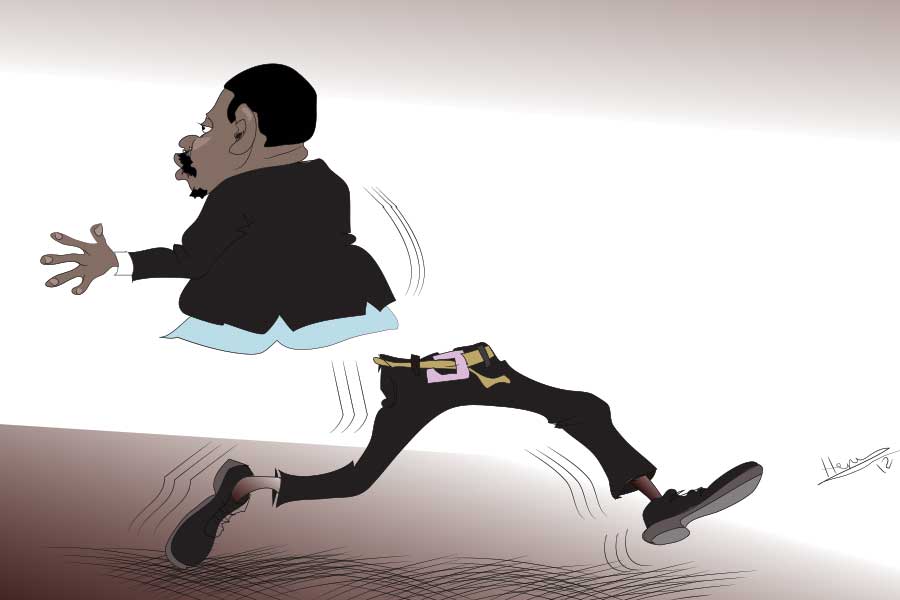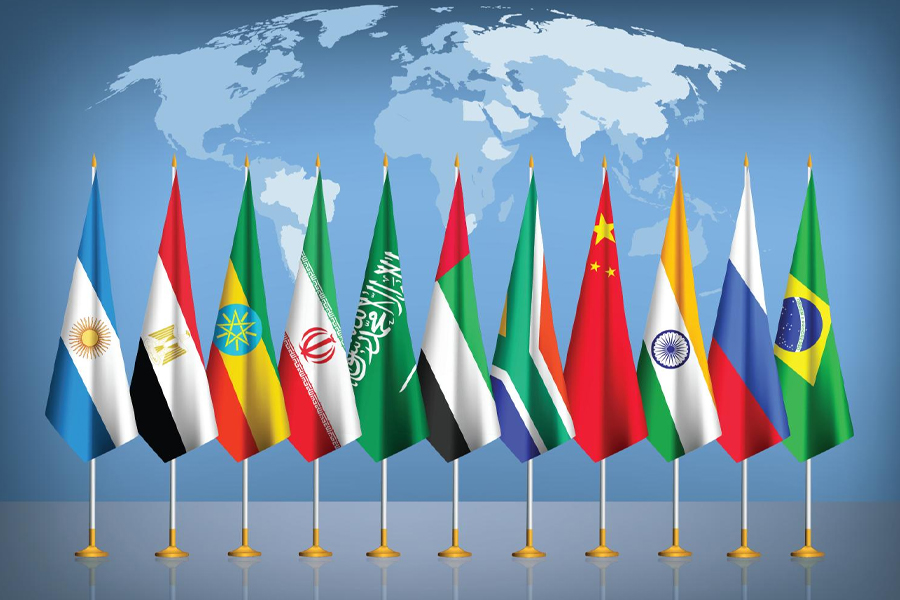
News Analysis | Nov 20,2021
Some of the things that suddenly creep into our minds are strange. For me, one was the worrisome essence of "merchants of death,” a term applied to any group of manufacturers or businessmen who make money from war and even promote conflicts in various ways so that they can make money. As some researchers have stated, the munition makers were among the major advocates and, ultimately, causes of World War I.
Bertolt Brecht also came to my mind. A period of great financial uncertainty forced him to pay a visit to Trude Hesterberg, who had opened one of the foremost cabaret places in Berlin. Being deeply impressed, it was immediately after that the latter booked him for six nights for a play that is typical of one of contemporary theatre. From its very beginning, the play, which had an anti-war message, started provokingly agitating the audience; once, wild mayhem broke out in the cabaret with people yelling at the play’s creator and director.
Nobody had expected such a reaction from a crowd searching for a good night out. After the curtain was brought down, an announcer came out on the stage to address the audience. He did not mince words.
“Ladies and gentlemen, that was a great disgrace, not for the poet, but for yourselves,” he said.
I was lucky to reminiscence these anecdotes a month ago on an evening worth boasting about for years to come. It was none other than Brecht’s play that provoked the German crowd, “Mother Courage,” performed in Addis Abeba as Emye Birtwa.
With my friends, we witnessed how the translation vindicated Brecht’s message of the horrors of war and its ring of truth with great care by adopting it to our country’s recent historical past with engaging songs and contemporary references. The uproarious welcoming at the curtain call, especially for the lead player, and the way the audience left the hall subdued, yet entertained, were as evident as it is further unforgettable.
It is a scene worth to remember for life, a moment of a theatrical drama. It was unusual to Addis Abeba’s stages, fine both in terms of performance and background, a drama perfect in its setting, presentation and, above all, outcome.
It gave me also a reason to appease what went on in my mind the whole of that day. I was engulfed with thoughts of pondering the fine line to be walked between the extremes of diversity and cultural pluralism the play was envisaged and how the audience would welcome it.
The message of Brecht is chilling. As he was writing, the war which was coming was not the first one, as there were other wars before it. When the last one came to an end, there were conquerors and conquered; among the conquered, the common people starved, and among the conquerors, the common people starved too. It is the lesson to be drawn from Emye Birtwa, on the inanity of war but its stubborn repetition throughout the ages.
As we are audiences in reality, it is a play we deserve and the play deserves a packed auditorium.
“When something seems ‘the most obvious thing in the world’ it means that any attempt to understand the world has been given up,” said Brecht.
One thing is for certain. The show is bent on updating our attitudes about war. It is a reflection of what drives humans towards a pit of snakes in a delirium of hate and anger. I used to be fascinated by a German friend who, almost throughout her life, frequented only Brecht’s plays and it is only now I understand.
PUBLISHED ON
May 07,2022 [ VOL
23 , NO
1149]


News Analysis | Nov 20,2021

Commentaries | Jan 27,2024

Editorial | Oct 19,2019

Viewpoints | Nov 20,2021

Life Matters | Feb 13,2021

Life Matters | Mar 05,2022

Viewpoints | Oct 20,2024

Fortune News | Oct 27,2024

Featured | Jan 05,2019

Editorial | Nov 27,2018

Dec 22 , 2024 . By TIZITA SHEWAFERAW
Charged with transforming colossal state-owned enterprises into modern and competitiv...

Aug 18 , 2024 . By AKSAH ITALO
Although predictable Yonas Zerihun's job in the ride-hailing service is not immune to...

Jul 28 , 2024 . By TIZITA SHEWAFERAW
Unhabitual, perhaps too many, Samuel Gebreyohannes, 38, used to occasionally enjoy a couple of beers at breakfast. However, he recently swit...

Jul 13 , 2024 . By AKSAH ITALO
Investors who rely on tractors, trucks, and field vehicles for commuting, transporting commodities, and f...

Jul 12 , 2025
Political leaders and their policy advisors often promise great leaps forward, yet th...

Jul 5 , 2025
Six years ago, Ethiopia was the darling of international liberal commentators. A year...

Jun 28 , 2025
Meseret Damtie, the assertive auditor general, has never been shy about naming names...

Jun 21 , 2025
A well-worn adage says, “Budget is not destiny, but it is direction.” Examining t...